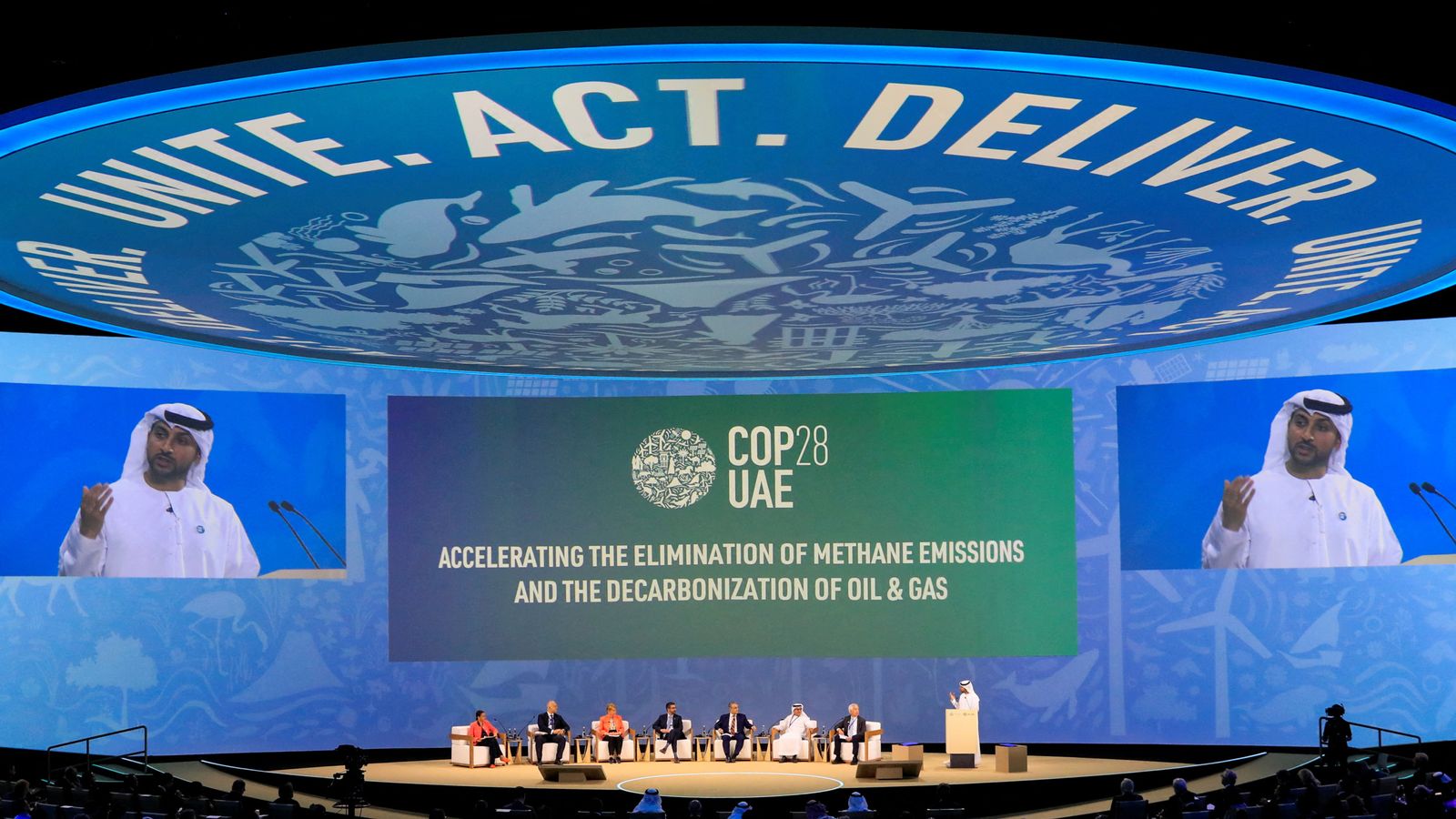Fossil fuel producers resisting the stronger action may be buoyed by the caveats and qualifiers in the text, including use of the word “could”.
By Victoria Seabrook, climate reporter at COP28 in Dubai
Governments are considering a plan to “reduce” consumption and production of fossil fuels, according to a first proper version of the COP28 deal.
The word “reducing” has angered developing countries and campaigners, as it reflects a watering of down of a previous proposal to “phase out”.
Island nations were dismayed by the lack of deadlines, and the lack of urgency of action in the next few years – as rising sea levels driven by climate change eat away at their shores.
John Silk, minister for natural resources from the Marshall Islands, spoke out against the text, saying: “We will not go silently to our watery graves”.
Fossil fuel producers resisting the stronger action may be buoyed by the caveats and qualifiers in the text, including use of the word “could”.
A look at ambitions and predictions over global carbon emissions
But the language could still frighten OPEC nations (Organisation of the Petroleum Exporting Countries), who have been resisting an eventual end to fossil fuels, as both their production of oil and the demand from their consumers would have to fall.
Samoa’s environment minister Hon. Toeolesulusulu Cedric Pose Salesa Schuster, speaking on behalf of the AOSIS group of small island states, said it seemed some countries had enjoyed “preferential treatment” – in an apparent jibe at members of OPEC, of which host nation UAE is a member.
Andreas Sieber, associate director of policy and campaigns at campaigners 350.org, said: “The COP28 draft text resembles a disjointed wish list, far from the stringent measures required to limit warming to 1.5C.
“The presidency, displaying a troubling lack of leadership, has notably weakened commitments to phasing out fossil fuels and promoting renewables.”
Read more:
UN climate chief’s emotional plea ahead of motion
Summit ‘not focusing on the cause’, say Pacific nations
The text suggests countries “could”:
(a) Triple renewable energy capacity globally and double the global average annual rate of energy efficiency improvements by 2030;
“(b) Rapidly phase down unabated coal and limitations on permitting new and unabated coal power generation;
“(c) Accelerate efforts globally towards net zero emissions energy systems, utilizing zero and low carbon fuels well before or by around mid-century;
“(d) Accelerate zero and low emissions technologies, including renewables, nuclear, abatement and removal technologies, including carbon capture and utilisation and storage, and low carbon hydrogen production.
This would enhance efforts towards substitution of unabated fossil fuels in energy systems.
“(e) Reduce both consumption and production of fossil fuels, in a just, orderly and equitable manner so as to achieve net zero by, before, or around 2050 in keeping with the science.”
Mr Sieber said: “By framing actions as ‘could’ instead of ‘shall,’ and with weak language on short-term declines and renewable targets, this draft falls short.
“Nations committed to climate action must reject this weakened proposal, insisting on transformative changes for a meaningful impact on global warming.”
Earlier versions of the document were more of a shortlist of options, whereas today’s version is regarded as a first draft of a final deal from COP28.

Emily Foster is a globe-trotting journalist based in the UK. Her articles offer readers a global perspective on international events, exploring complex geopolitical issues and providing a nuanced view of the world’s most pressing challenges.








